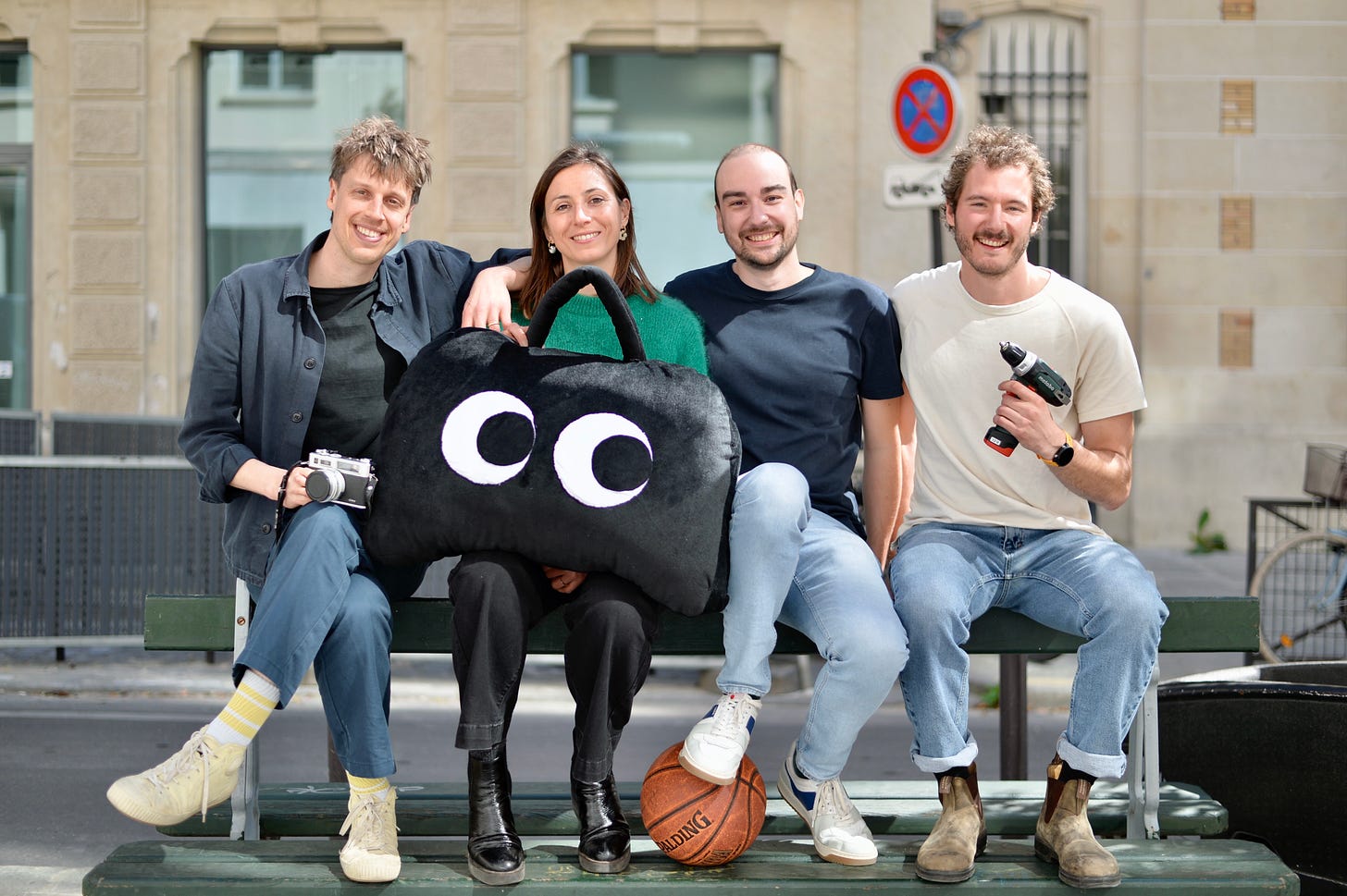#67 Poppins
Your neighborhood rental marketplace
Read time: 5 minutes
Hi, I’m Javi Gascón.
This is Climate Tech Distillery, a newsletter where I talk about one specific climate tech company every week.
Subscribe for free to receive my weekly articles in your inbox.
Today we’ll distill a company that has created the Airbnb for borrowing everyday items: Poppins 🇫🇷
Want to sponsor Climate Tech Distillery? Here’s all the info.
What Problem Does Poppins Tackle❓
Poppins addresses the widespread issue of underused household items and the resulting environmental and economic waste:
1. Overproduction and Underuse: Many everyday items are purchased, used infrequently, and then stored or discarded, leading to resource inefficiency. For example, the average electric screwdriver is used for ONLY 18 MINUTES in its entire lifetime.
2. Waste Generation: The “throwaway culture” results in millions of tons of repairable goods and textiles being discarded annually, with 35 million tons of waste and 261 million tons of greenhouse gas emissions in the EU alone.
3. Clutter and Space Issues: The average US home contains about 300K items! A culture of accumulation leads to crowded and inefficiently used living spaces.
4. Economic Loss: Consumers spend money on items they rarely use, while valuable resources are locked away unused. Very inefficient use of money.
Your wallet, your house and the planet all have a lot to gain if you rent instead of buy all sorts of items.
Product / Service 📦
Poppins is a peer-to-peer platform for lending, borrowing, and renting everyday items within local communities. Why is Poppins so cool you ask?
Wide Offer: Users can find pretty much anything like surfboards, air fryers, and other everyday items from individuals or local businesses.
Money: Borrow what you only need once or twice instead of buying it, and earn by renting what you own and don't need every day. As you only pay per use, you can access items that otherwise would be too expensive.
Convenience and Efficiency: Users can quickly create an account, filter items by category, book them easily, and pick them up in their neighborhood, ensuring a smooth and safe transaction process. The return of an item is arranged directly between the borrower and the provider.
Sustainability: By promoting sharing over individual ownership, Poppins helps reduce storage needs, waste and unnecessary manufacturing in the first place.
Space: Even those who live spaciously do not have all the storage to stock everything. Think about all the space you’d gain by renting items you rarely would use if you bought them.
Trust and Support: The platform offers insurance, secured payments and customer support, ensuring both lenders and renters are protected and supported throughout the whole process.
Market 🌐
The sharing economy market is projected to grow from $246 billion in 2025 to $631 billion by 2029, driven in part by sustainability and climate change concerns and also because it makes a lot of economic sense.
Platforms for buying and selling secondhand items like Wallapop and Letgo are great first steps but this is taking waste reduction to a whole new level.
Other Key Players
There are several small peer-to-peer lending platforms/websites but these stand out:
Fat Llama 🇬🇧: A leading platform for renting lots of items from people nearby, especially popular in the UK and US.
Peerby 🇳🇱: A Dutch-based service that allows neighbors to borrow or rent items from each other.
Poppins stands out in several aspects: broader item categories, very smooth UX, and focus on trust and safety.
Founding Story 🦄
Poppins launched just 2 months ago, in May 2025! It was co-founded by 4 beasts of the sharing and circular economy.
Lucie Basch (CEO) co-founded Too Good To Go in 2015. The platform now has over 100 million registered users! Jonas Mallisse (COO) is the former head of international expansion at Too Good To Go Belgium. Franco Prontera (CPO) is the former general manager of Too Good To Go Belgium. Loïck Le Digabel (CTO), former software engineer at BlaBlaCar and Back Market.
This guys clearly have some experience in the field and all their learnings will probably turn Poppins into another massive success. It also helps they have previously worked together for several years.
The company only operates in France at the moment but expect to see it in other countries soon. Despite being so young they have already built partnerships with big brands like Bio C’ Bon, they have processed thousands of item rentals, and they have excellent feedback (4.5/5 stars on Apple Store).
Top Impact Stats 📈
Since they’re only 2 months old, it’s hard to have impact stats but here it goes:
Already 50K users all over France and 150 product categories.
Sharing consumer goods can reduce greenhouse gas emissions by about 80% compared to traditional ownership, depending on the type of item and how far it travels for exchange.
Sharing platforms can potentially reduce household waste by 20% overall.
Whenever you’re ready, there are 2 ways I can help you:
Scale and optimize your climate business: I build low-code automation systems for climate companies so they can free up time to scale their revenues and their climate impact.
Give visibility to your climate company: Get your company in front of an audience of thousands of climate players and enthusiasts by sponsoring newsletter issues and LinkedIn posts.
Thanks for reading today’s issue! If you liked it feel free to hit the ❤️ button and share it with someone who might like it too. See you next Saturday :)









Thanks Javier for such a fresh coverage. This is a largely unsolved problem despite multiple attempts and it seems that the service and app value proposition are well thought and leverage the very relevant experience of Lucie and Too Good to Go. Will be tracking them :)
I wrote a post about the sharing market (in Spanish) a few months ago and just added a comment linking this great profile:
https://verdadesincomodas.substack.com/p/por-que-nos-cuesta-tanto-compartir
You should check out Lizit from Colombia too!